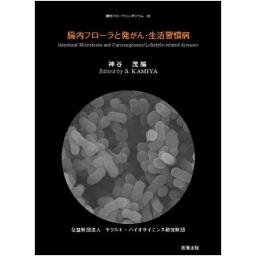1) 神谷茂 : 腸内フローラと内科疾患, Jpn J Antibiotics, 70 : 1-13, 2017
2) Durack J & Lynch SV : The gut microbiome : Relationships with disease and opportunities for therapy. J Exp Med 216 : 20-40, 2019
3) がんの統計 2022, 公益財団法人がん研究振興財団
4) Tabish SA : Lifestyle diseases : consequences, characteristics, causes and control. J Card Curr Res 9 : 1-4, 2017
5) Ahlawat S et al. : Gut-organ axis : a microbial outreach and networking. Lett Appl Micribiol 72 : 636-668, 2021
6) Ivleva EA & Grivennikov SI : Microbiota-driven mechanisms at different stages of cancer development. Neoplasia 32 : 100829, 2022
7) Zella D & Gallo RC : Viruses and bacteria associated with cancer : an overview. Viruses 13 : 6, 2021
8) Grivennikov SI et al. : Immunity, inflammation and cancer. Cell 140 : 883-899, 2010
9) Cheng WY et al. : The role of gut microbiota in cancer treatment : friend or foe? Gut 69 : 1867-1876, 2020
10) Sepich-Poore GD et al. : The microbiome and human cancer. Science 371 : 6536, eabc 4552, 2021
11) Cao Y et al. : Role of gut microbe-derived metabolites in cardiometabolic diseases : Systems based approach. Mol Metab 64 : 101557, 2022
12) Wang Z et al. : Gut flora metabolism of phosphatidylcholine promotes cardiovascular disease. Nature 472 : 57-63, 2011
13) Tang WH et al. : Gut microflora in cardiovascular health and disease. Circulation Res 120 : 1183-1196, 2017
